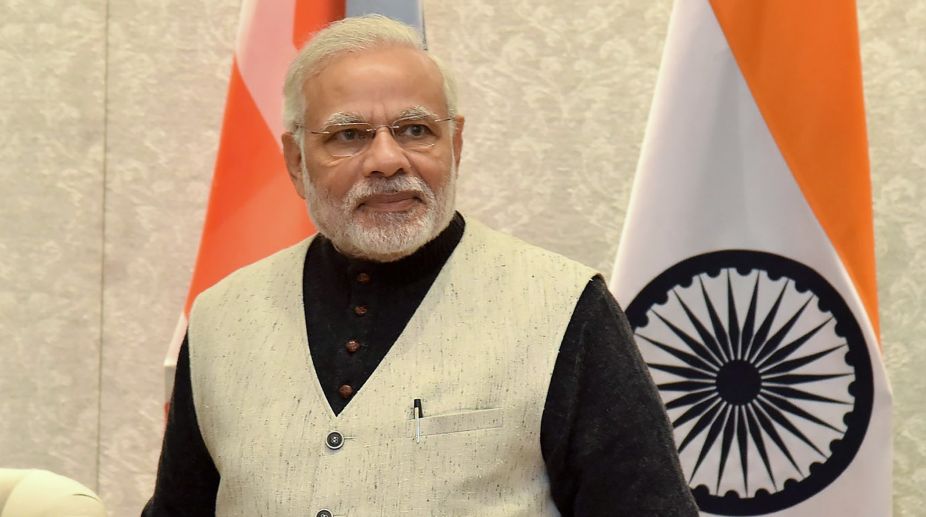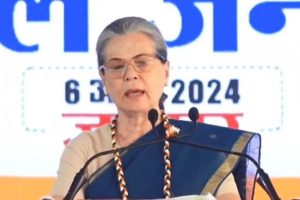Despite wide media coverage of the people’s hardship following Narendra Modi’s drastic measures and despite the strong anti-Modi stand of the media in general, people’s support for the Prime Minister remains unaffected. Notably, there has been no mass protest against the demonetisation decision.
This essay seeks to explore the precise mechanism behind this phenomenon and to assess whether this support will continue even if Modi’s policy fails to produce tangible benefits. Or will he fail to keep his promise?
Advertisement
At the risk of simplification, let me present here the following six elements which arguably could yield a measure of spirited mass-support in the aftermath of a novel decision as political as it is momentous.
The first is the element of despotism. Modi’s style of imposing stringent measures without prior discussion has been vehemently criticised by some as undemocratic and despotic. But interestingly and ironically enough, this very clement of despotism might be the most crucial factor in attracting mass support. People tend to prefer strong leaders, who can take the risk and responsibility, can take bold decisions and can stick to these. Good or bad, a despotic leadership is sometimes the only option before a nation. This is borne out by the recent rise of the far-right parties and neo-fascists in many European countries and the unexpected victory of Donald Trump and his unconventional perception of immigration and terrorism.
The second is the element of charisma: Even his critics would agree that Modi is a highly charismatic leader, who can sway the people with unconventional thoughts, unpredictable initiatives, and the inherent skill in the use of emotive expressions to entertain grand visions.
The third factor is national interest: Even in this self-centered age, people love to make sacrifices for a greater cause. So when Modi urged his countrymen to bear with the temporary hardship for serving a greater cause ~ to fight against corruption and black money ~ the people did respond. The Prime Minister has been able to arouse national sentiment, and it is this realisation that justifies their hardship.
The fourth is the element of anger and a common enemy: Modi has been able to exploit the dormant anger of common citizens against corruption and black money. A common enemy has turned out to be the unifying factor. The Prime Minister has won the support of the people by fuelling their anger.
The element of shock and novelty is the fifth factor. We are usually attracted to a novel idea. And an extraordinarily novel idea can indeed be overwhelming. We get stupefied and tend to accept it without much reflection as we cannot find anything similar to compare with it. Modi's announcement of demonetisation of high-denomination notes on 8 November has had a high-voltage shock value.
The sixth factor is political inaction and ideological hypocrisy: People are not fools. They are not simply carried away by a leader. They choose their action and their leader by considering other options. For far too long have they heard the political class talking about corruption, but doing little or nothing to combat the menace. Now that the country’s Prime Minister has eventually unveiled a concrete step, the people by and large were united against him. The intellectuals also joined them in one-sided criticism from a strict leftist perspective. This has already been reflected in the social media where the people, especially the younger generation, are baring their angst against this ideological hypocrisy.
The factors mentioned must work in tandem to ensure such sustained support. Indira Gandhi also shocked the people by promulgating the Emergency. She too was an extremely charismatic leader, but her decision did not appear to serve a greater cause or national interest but merely her narrow political interest.
The crucial question is whether this support will endure even if Modi fails to deliver and thus fails to fulfill the expectation he has generated. He took a calculated risk by putting millions to great hardship and anxiety. Is it possible that people will change their opinion and withdraw their support in utter frustration?
My answer is ‘No’. It would be pertinent to mention the famous social-psychological study led by Leo Festinger and his team, narrated in the book, When Prophecy Fails. They joined an apocalyptic secret cult, whose leader was a widow, Dorothy Martin. She prophesied that the earth would be destroyed by an alien force from an outer planet. In response, the followers gave up their jobs, their properties, their spouses to demonstrate their faith and in preparation for this impending doomsday. Dorothy even mentioned the exact date and time of that event. When the time came and went, nothing happened, Dorothy claimed that the earth had been spared because of the sacrifice made by the members, their ardent prayer and goodwill. Rather than discard their discredited belief, the members adhered to them even more strongly and started proseletyzing with greater fervour. Festinger concluded that more stronger the sacrifice and commitment made for a cause or belief, the more difficult it would become for one to change his belief or position.
The same might happen now. After considerable sacrifice and demonstrating a strong commitment, it would be harder for the people to change their opinion about Modi or to abandon their faith in him, even if their expectations are not met. Rather it would be far easier for them to try to re-convince themselves and others in myriad ways. After all, man never comes short in rationalisation.
Whether or not Narendra Modi keeps his promise, the Prime Minister has hit the jackpot!
The writer is an Assistant Teacher of Sociology











